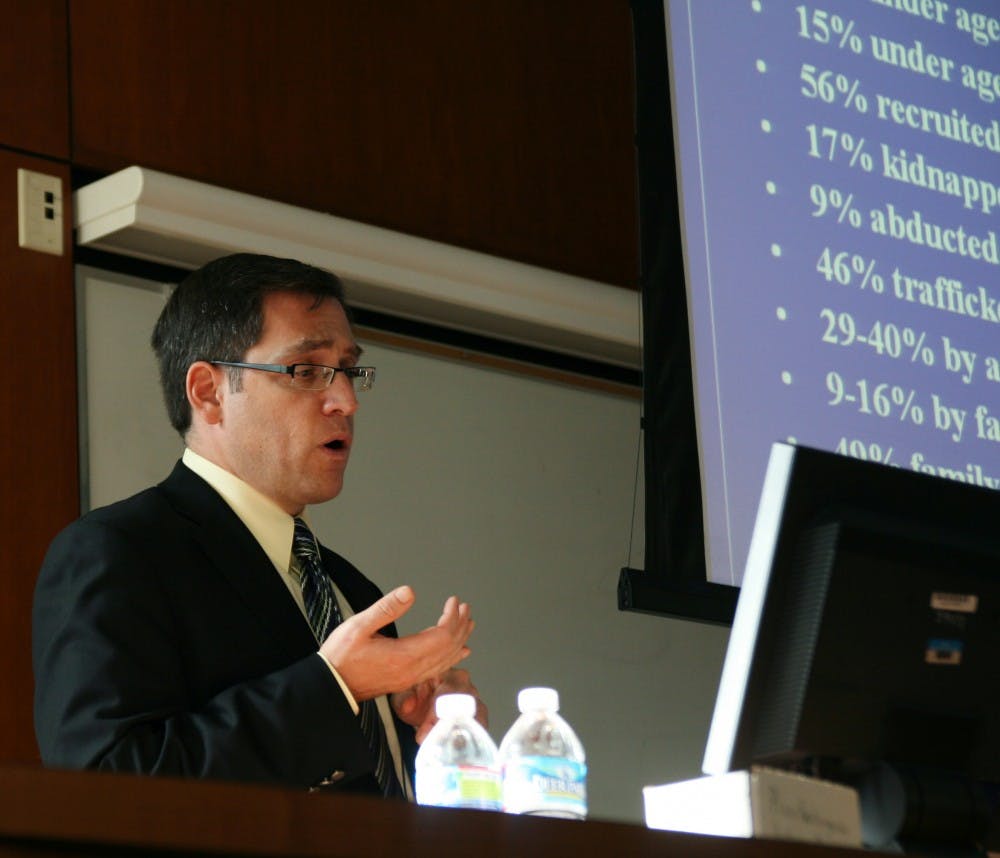Harvard professor Jay Silverman spoke Wednesday about sex trafficking, domestic violence, how the two are related and what the average person can do about it.
Donna Bickford, director of the Carolina Women’s Center, said Silverman is a well-published scholar who is incredibly passionate about research in sex trafficking.
Silverman said his discipline is one where standard research designs cannot be applied.
“These people are invisible,” he said.
“It is very, very hard to get reasonable data on these folks,” he added, blaming brothel owners who lie about the number and ages of the girls who work for them.
He said it is difficult for researchers to get in contact with victims themselves because they are hesitant to come forward.
Silverman defined trafficked workers as people less than 18 years old at the start of their “career,” or someone of any age who enters the business by force, fraud or deception.
He said the experiences they go through are traumatizing and bring them endless shame, as well as the risk of HIV infection.
He cited research that found that 38 percent of trafficked women are HIV positive. Sixty percent of these women are girls younger than 15.



